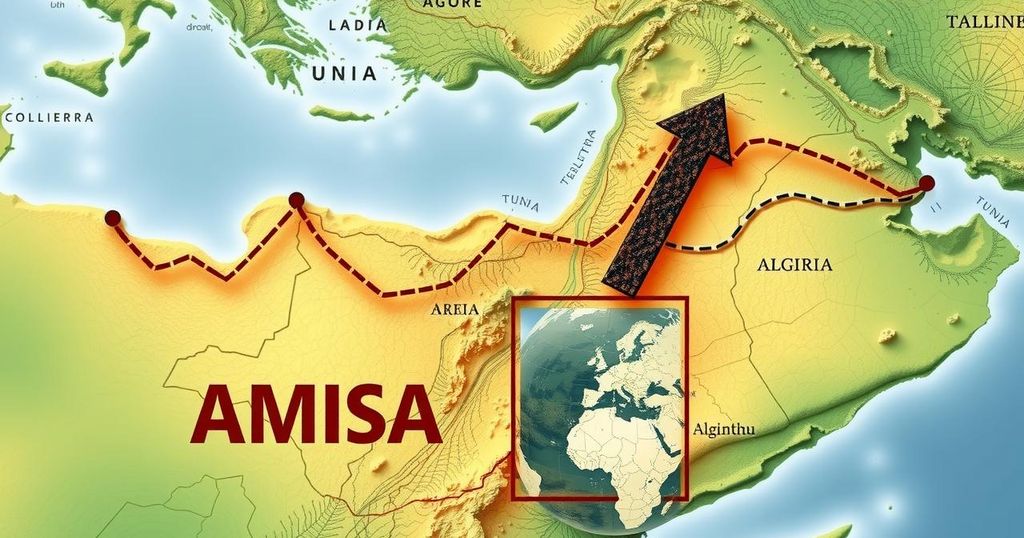Algeria and Tunisia’s Ongoing Immigration Challenges: A Border Crisis

Algeria and Tunisia are facing a border crisis due to increased irregular immigration, aggravated by Algeria’s recent restrictions on accepting migrants. Key discussions between Tunisian and Algerian officials have raised concerns regarding border security, crime rates, and the economic impact. While calls for military intervention have surfaced, human rights organizations criticize the government’s policies. Europe’s pressure without financial aid adds to the complexity of the situation.
Algeria is currently grappling with significant issues regarding irregular immigration from Tunisia, with thousands of immigrants crossing the border over the years. Recently implemented restrictions by Algeria to accept these individuals have exacerbated the situation, culminating in a border crisis. While there has been some coordination on migration and security matters, Tunisia accuses Algeria of insufficient action to curb the influx of migrants.
In response, Tunisian President Kais Saied dispatched Interior Minister Khaled Nouri to engage in discussions with his Algerian counterpart, Ibrahim Mourad. The officials addressed key topics surrounding smuggling, border security, and the economic repercussions on both nations. The participating diplomats highlighted the necessity for enhanced cooperation and coordination to manage the rising irregular immigration to Tunisia. Subsequently, Nouri met with Algerian President Abdelmadjid Tebboune.
Political analyst Nabil Rahbi stated that “Algeria must demonstrate its cooperation on migration issues by preventing the flow of migrants towards Tunisia,” expressing concerns over Algeria’s perceived lack of responsibility in recent times. The border region of Sfax has emerged as a focal point of concern, with increased reports of crime and assaults, prompting Tunisian parliamentarians such as Tariq Al-Mahdi to advocate for military intervention to secure these areas.
Contrarily, several human rights organizations have criticized these calls for intervention and the government’s ineffective migration policies. According to Tariq Al-Mahdi, a member of the Assembly of People’s Representatives (ARP), “There are criminal gangs lurking in shelters that cannot be repelled or resisted. They break into the houses by force and seize the money by threatening them with swords and knives.”
Moreover, Europe is exerting pressure on Tunisia to halt the flow of irregular immigrants towards its shores, yet it has not provided financial assistance to facilitate this endeavor. The situation continues to deteriorate as Tunisia becomes a critical junction for immigrants. Notably, in May 2024, Tunisian National Guard spokesman Hossam Eddine Jebabli reported that over 19,000 illegal immigrants were recorded entering Tunisia in the first four months of the year, with more than 70% of them crossing from Algeria.
In summary, Algeria and Tunisia are facing a growing immigration crisis, exacerbated by border restrictions and rising crime in affected areas. The cross-border collaboration on migration issues remains crucial, while criticisms from both political figures and human rights organizations emphasize the dire need for effective strategies. The pressure from Europe further complicates the situation as Tunisia’s role as a migration route intensifies. Immediate action and cooperative efforts are vital to address these complex challenges.
Original Source: www.atalayar.com








